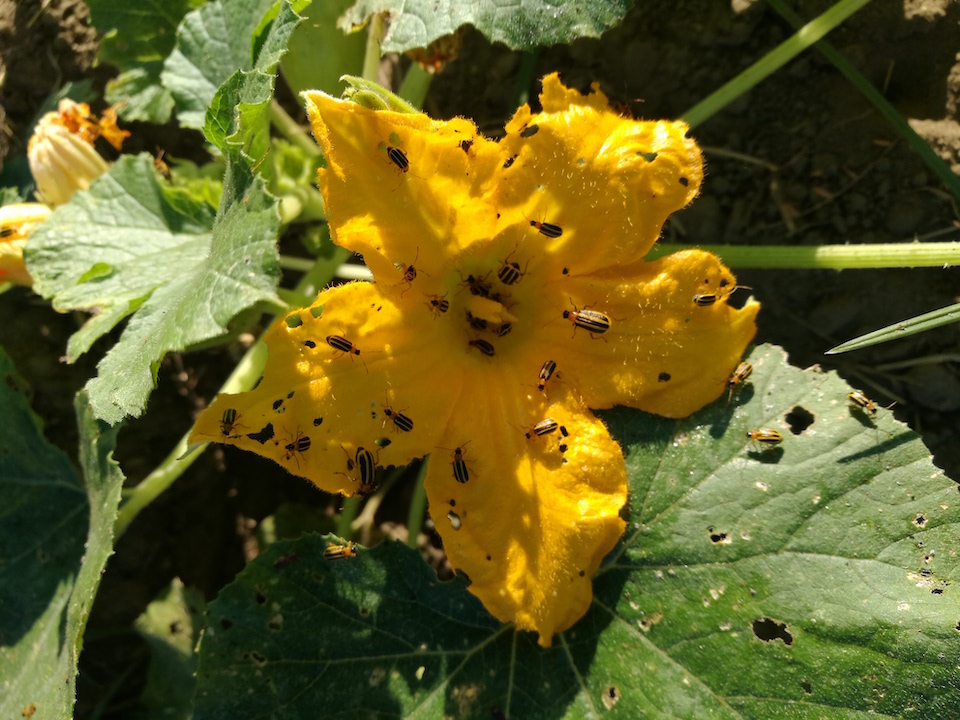Charlyne Jaccard
Research interest
The consequences of domestication of on the chemical ecology of plant-insect interactions in Squash

Plant domestication has generally resulted in decreased chemical and physical defense in crop plants compared to their wild ancestors. A reduction in plant defensive traits is often expected to result in an increase of herbivorous insect performance. However recent studies have shown that this pattern is not ubiquitous. The reason for this may lie in the purpose or the organ targeted by domestication. Such that, a positive relationship between reduction in plant defense and increased insect performance will be only, or more evident for cultivars and plant organs that have been selected for consumption.
My studied model is squash plant (Cucurbitaceae). I focus in the gender Cucurbita which has been domesticated in Central America about 10’000 years ago for different purposes. Artificial selection changed a lot of genetic, chemical and morphological characteristic of squash to enhance the fruit size and nutrient content among others. The reduction of specialized secondary metabolites called cucurbitacins was a key step. These compounds are toxic at very low concentration to many organisms and act as kairomone and allomone. It is why it mediated the coevolution between cucurbits and herbivores.
The aim of my project is to get an overview of the effect of domestication and phylogeny on the chemical ecology of plant-insect interactions in Squash plant. I mixed laboratory in Neuchâtel and in Purdue university (Indiana) and field experiments in Puerto Escondido (Mexico).
Main topics
- Plant domestication
- Tritrophic interactions
- Chemical ecology
Teaching activities
- Ecologie des populations (BSc 2)
- APP (Apprentissage par problème) (BSc 3)
- Master thesis supervision of Nicolas Marguier
Organization conferences
Biology18, member of the organization committee, Neuchâtel 14-16.2.2018, Switzerland
Education
2017-present PhD student on Evolutionary entomology Laboratory (part of the Institute of Biology) of the University of Neuchâtel, Switzerland.
08.2017 MSc in Biology (Chemical Ecology and Sustainable Agriculture), University of Neuchâtel (UniNE)
06.2015 BSc in Biology, University of Neuchâtel (UniNE)


